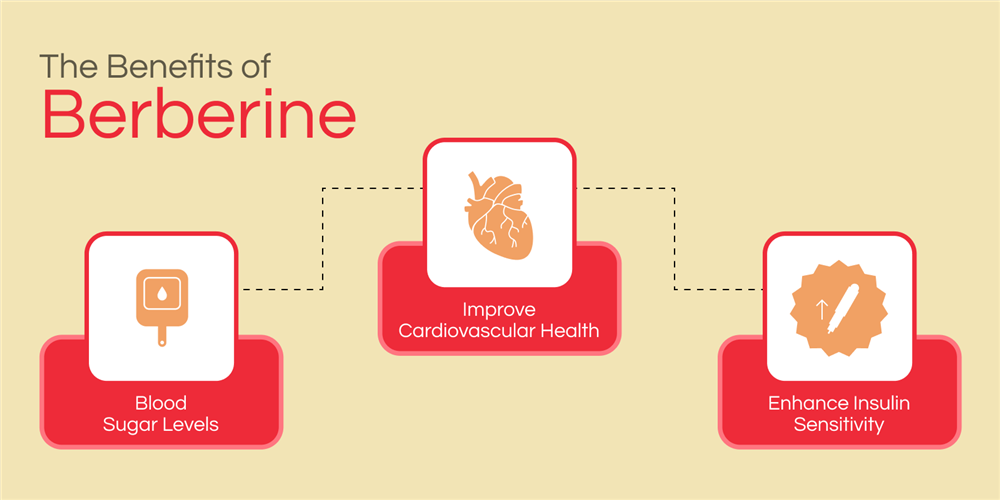The Health Benefits of Berberine: What You Need to Know

Berberine is a natural supplement that has been used for centuries in traditional Chinese medicine. It is extracted from the roots and stems of several plants, including goldenseal, barberry, and Oregon grape. In recent years, berberine has gained popularity in the health and wellness industry due to its potential health benefits.
One of the primary benefits of berberine is its ability to help regulate blood sugar levels. Several studies have shown that berberine can lower fasting blood glucose levels and improve insulin sensitivity in individuals with type 2 diabetes (1, 2). Berberine may also help reduce the risk of developing diabetes in individuals with prediabetes (3). The typical dosage employed is 400 mg orally three times per day.
Berberine may also have a positive effect on cardiovascular health. Studies have shown that berberine can lower total cholesterol, LDL cholesterol, and triglyceride levels, which are all risk factors for heart disease (4, 5). Berberine may also help improve blood pressure and reduce inflammation, both of which are also associated with cardiovascular disease (6, 7).
In addition to its potential benefits for blood sugar and cardiovascular health, berberine may also have antimicrobial and anti-inflammatory properties. Berberine has been shown to have activity against several types of bacteria, including those that cause diarrhea and urinary tract infections (8, 9). Integrative medicine practitioners often use Berberine for this antimicrobial effect in helping patients with dysbiosis (imbalance of good and bad flora in gut). Berberine may also help reduce inflammation in the body, which is linked to many chronic diseases (10).
Overall, berberine is a natural supplement that may offer several health benefits, including regulating blood sugar levels, improving cardiovascular health, and potentially having antimicrobial and anti-inflammatory properties. However, as with any supplement, it is important to talk to your healthcare provider before adding berberine to your regimen, especially if you have any underlying medical conditions or are taking medications.
References:
4. Li Y, Li S, Guo D, et al. Clinical effects of berberine in the treatment of severe congestive heart failure in combination with standard therapy. Cardiology. 2007;107(4):234-238. doi:10.1159/000096102
6. Yin J, Ye J, Jia W. Effects and mechanisms of berberine in diabetes treatment. Acta Pharm Sin B. 2012;2(4):327-334. doi:10.1016/j.apsb.2012.06.001



